Newsletter – July 2023
From the CEO
Back in March, we told you about upcoming changes to our Training Rules that created a new regulatory framework for qualifying as a Costs Lawyer. Since then, we have been working closely with the education and training arm of the Association of Costs Lawyers – ACL Training – to consider their proposals for a new Costs Lawyer Professional Qualification and to assess whether the course meets our regulatory requirements. After a rigorous accreditation process, we have approved the new course to open in September.
It is perhaps worth saying something about “who does what” when it comes to training new Costs Lawyers. The Association of Costs Lawyers (ACL) is, of course, the profession’s representative body. It has a key stake in Costs Lawyers’ future and its primary role is to promote the interests of the profession. ACL Training is a subsidiary company of ACL, but with an independent board. It supports ACL’s goals by training the next generation of Costs Lawyers, helping to build the profession’s reputation for meeting high ethical and service standards.
CLSB is also a subsidiary of ACL, but we operate as an entirely separate, independent body (this is a requirement of the statutory framework). While we also want to support the profession to grow and succeed, our objectives come directly from the Legal Services Act 2007 and require us to act first and foremost in the interests of consumers, the public and the justice system. Our role in education and training is to set the minimum level of competency that qualified Costs Lawyers must demonstrate before they can practise, in the interests of public protection. That is what our new Training Rules – along with the myriad resources that sit beneath those Rules – aim to do.
This is why, before ACL Training can launch a new pathway to qualifying as a Costs Lawyer, its course offering must be accredited by the CLSB. The accreditation process involves us learning about ACL Training’s proposals in detail, asking questions and challenging assumptions, speaking to students and tutors, testing the online learning platform, and reviewing policies, procedures and governance structures. All this has the ultimate aim of testing whether ACL Training’s course will be able to assess – accurately, fairly and robustly – whether students meet the minimum standard of competency that Costs Lawyers require.
This year marked the first time that we ran the accreditation process under our new procedures, which were established by our Scheme Handbook published in February. Through the process, both CLSB and ACL Training learned a huge amount about the options and opportunities open to us going forward. We are confident that ACL Training’s new Costs Lawyer Professional Qualification will serve the profession well, including by offering more flexibility and choice for those wishing to join us.
More information about the qualification can be found in the “Spotlight” section of this newsletter, and the CLSB’s resources on qualifying as a Costs Lawyer can be found on our website.
Kate Wellington
CEO
